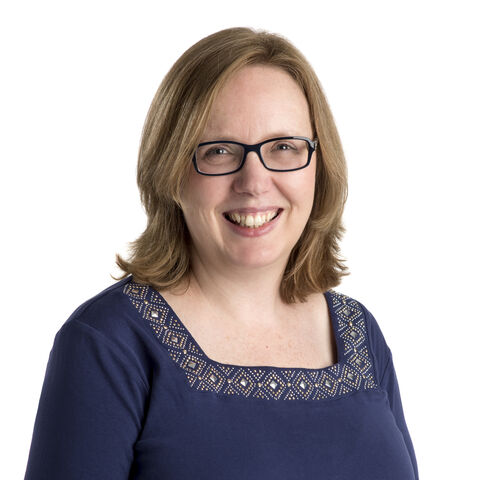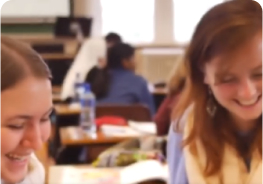The Faculty of Theology
Home / Theology


Welcome to our Faculty Page! We are passionate about the possibilities of Theology to contribute to society, church and the academy. Our commitment compels us to teaching and learning that supports each individual, to research that is relevant, faithful and innovative. Learn more about us, our values and our collaborations. We are always open to new connections.
Our Vision
As a Catholic theological faculty rooted in the Gospel, our vision is to flourish in the service of church, society and culture, nationally and internationally, through a community of research and learning that fosters intellectual, pastoral and professional excellence.
Faculty Expertise
The Faculty of Theology at St Patrick's Pontifical University supports the full range of theological disciplines. As the largest Catholic Faculty in Britain and Ireland, it contains internationally recognised expertise across the spectrum of theological subjects. It is supported by a long heritage of 220 years and the resources of a contemporary university.
Dr Jessie Rogers
A word from Dr Jessie Rogers - Dean of the Faculty of Theology
Our Research
Explore our research activities, collaborations and resources.
Why Theology is right for you
Students talk about their experiences
FREQUENTLY ASKED QUESTIONS
Students
The word “theology” comes from two Greek words: theos meaning God and logos meaning word. Together, they mean “speaking about the divine”.
Theology, as a field of academic study, refers to the disciplined inquiry into the religious dimension of human experience. It also has a more limited sense, in examining the beliefs of a particular religious tradition and community.
The study of theology involves so many aspects of people’s lives. Therefore it reaches across many subjects, including philosophy, history, the arts, and the social sciences.
Ultimately the study of theology deals with the fundamental nature of reality. It challenges those who study it to examine and clarify their own religious beliefs, values, and practices. It engages the whole person in a journey toward understanding and self-discovery.
Students who graduate in theology are trained to investigate and interpret human experience using a range of perspectives and methods. They learn how to critically engage with the beliefs and actions of individuals, faith-communities and societies. By doing so, Theology Graduates will have developed their written and oral communications skills. All of these abilities are important for success in post-graduate studies and employment.
Theology Graduates tend to be unique individuals with highly diverse career interests.
- Many prepare for teaching at either primary or secondary level. Others go on to have careers at university level.
- Others students take on a ministry. They go on to take positions in churches, social service agencies, or other religious organizations. A few can go on to join seminary in order to consider ordained ministry.
- Most of our students combine Theology with another field of study. Therefore many will go on to work in areas commonly associated with their parallel subject: for example, social work, history, education, counselling, and law.
- Some Theology Graduates take a gap-year working as a volunteer with religious or social service programmes, at home or abroad, while exploring their career options.
- Finally, some students study Theology as an important part of their own personal growth and deep interest, while taking a second subject in another field that offers a more predictable career path.
The Faculty of Theology offers a wide range of modules that cover most of the topics normally included in the academic study of theology.
- Some modules will consider a particular religious tradition, text, or thinker.
- Other modules will trace a particular question or theme across a variety of sources.
- Still other modules examine the relation between religion and other realms of thought (science, philosophy, art, etc.)
- Finally other modules explore the private beliefs and practices of individuals.
At undergraduate level, the programmes at St Patrick's Pontifical University are primarily designed to explore the intellectual dimension of religion, rather than providing hands-on training in ministry.
However, Maynooth does provide pathways for students who would like to work in ministerial or pastoral leadership. Ordinarily, such students might go to seminary or undertaken a ministerial training program. Both are offered at Maynooth. If you are interested in ordained ministry, it is best to contact your local diocese or the religious congregation which you feel a call.
If you are interested in lay ecclesial ministry – such as chaplaincy, parish work and so on – Maynooth offers a nationally recognised pastoral leadership programme.
First of all, a welcome! Our small community on a large campus means that you will be joining a wonderful learning community.
Secondly, expertise! The Faculty of Theology at St Patrick's is the largest Theological Faculty in the Catholic tradition in Ireland and Britain. This allows us to cover the full range of topics that comprise the discipline of Theology.
Thirdly, an international flavour! Alongside faculty members from the UK, South Africa and the US, nearly all our Faculty have studied outside Ireland. All hold doctorates from leading universities, including Tubingen in Germany, The Gregorian in Rome, Italy and The Catholic University of America, Washington DC.
Fourthly, they are professional! They are all are professional scholars who write books, publish articles, and present papers on a regular basis. For more on the background and interests of particular faculty members, see the Staff page.
Fifthly, they are committed teachers! All of the members of the Faculty of Theology are committed teachers who work tirelessly to make their classes interesting and engaging.
Finally, they are available! Theology classes at Maynooth are academically challenging, but faculty members are available at any time to help students with course work and to discuss their personal concerns.

If you live outside Ireland, check out our dedicated area for international students.
Let’s talk
For Undergraduate queries: email admissions@spcm.ie.
For Postgraduate queries: email pgadmissions@spcm.ie.
For The Centre for Mission & Ministries queries, email: cmmadmissions@spcm.ie.
